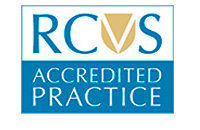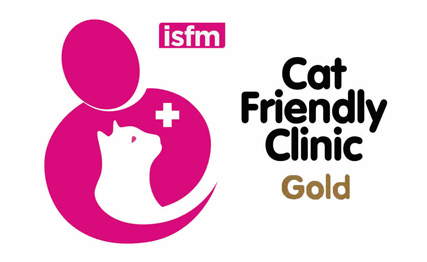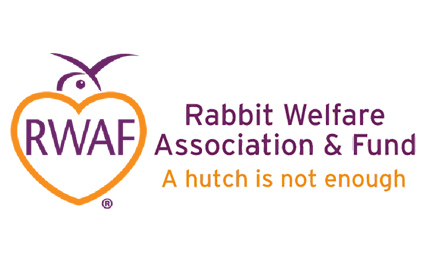24 hour contact: 020 7387 8134
Caring for your kitten
If you've just welcomed a new kitten into your household (or are planning to), it is an exciting time. We recognise you may want some kitten care advice - not just about your kitten's health but also about behaviour and environment.
The RVC Beaumont Sainsbury Animal Hospital has achieved the gold level standard 'Cat Friendly Clinic' award from the International Society of Feline Medicine so you can be rest assured you will receive exceptionally high care at all times.
Our helpful Caring for your kitten leaflet is available here (PDF) : Download
Nutrition
Kittens need a balanced, nutritious diet to support growth and bone development. We recommend using pre-prepared, complete and high quality food designed for kittens. Instructions may differ based on body weight and breed.
Feeding Guide - Split daily allowance
- 6-12 weeks old - 4 meals per day
- 3-6 months old - 2-3 meals per day
- 6-9 months old - 2 meals per day
- 9-10 months: Transition to adult food
Fresh water should be available to drink and be located separately from litter box and food. You can contact our team for advice any time.
Toilet training
Cats are fast learners when it comes to toilet training. At least one litter tray per cat should be provided. This should be placed in a quiet place away from their food and water. Litter trays need to be cleaned out regularly.
Socialisation and behaviour
Kittens are learning and developing rapidly between 10 – 20 weeks so it is very important that they become familiar with people, situations and any other cats or dogs that are in your household. If your kitten is being introduced to older pets in your home, they should be supervised whilst they get to know each other slowly.
Understanding and reading cat body language is useful to help you understand your cat and their needs.Our vet nurses have a special interest in behaviour management; please book an appointment if you would like more guidance.
Playtime and toys
Suitable toys can be provided for stimulation and distraction. Take care not to allow cats to eat stringy material as this can be dangerous.
Grooming
Kittens and cats do not need regular bathing. If you need to bathe your kitten, do so with a gentle pet shampoo.
Parasite control
Worms
Kittens contract worms from their mum’s milk at a young age. They contract parasites easily throughout life so regular worming is important. Kittens should be wormed from two weeks old.
There are a variety of different treatment options for treating worms in young kittens. This will depend on previous treatments and the products used. Please ask us for advice on which product is best for your kitten.
Bringing a kitten into your world is an exciting time. We realise you may have a whole host of questions about your kitten’s health, wellbeing and development. This handy factsheet is designed to help you and your pet from the start.
Fleas
It is important that you have your kitten checked for fleas. Each flea can lay up to 2000 eggs, so a single flea can be a big problem. If your cat will be venturing outside, we recommend treating to prevent flea problems.
Flea treatments can be applied to kittens from six weeks of age, once a month to treat and prevent fleas. You should contact your vet for advice if you are concerned about fleas in a younger kitten.
Vaccinations
Kittens are inoculated to protect them against cat flu (feline herpes and calici virus) and enteritis (panleukopenia virus). We recommend the feline leukaemia virus vaccination - particularly for outdoor cats.
Kittens should be vaccinated from eight weeks old. Please check whether your kitten has had vaccinations prior to you adopting them and bring any vaccination paperwork to your vet appointment.
Pet insurance
We recommend life-long pet insurance for your kitten. This provides a means of covering your veterinary care costs.
Oral health
It is a good idea to get your kitten comfortable with having his or her teeth cleaned. Kittens have baby teeth which gradually fall out from around three months of age. These are replaced by permanent adult teeth by around six months old.
Our team offers dental demonstrations and can advise you on pet oral hygiene products for cleaning your cat’s teeth.
Microchipping
A microchip is a small implant (about the size of a rice grain) which is used to permanently identify your kitten. It is inserted under the skin by injection. It can be done in a regular appointment or at the time of neutering. It is your responsibility to keep your details are up-to-date on the pet microchip database.
Neutering
Neutering refers to permanent ‘desexing’ or sterilisation.We recommend early neutering from four months of age in all suitable kittens.
We base this on the latest scientific research/evidence.This day procedure is carried out under general anaesthetic to remove the ovaries in females (spay) or testicles in males (castration). Spaying can provide benefits such as prevention of unwanted pregnancy, repeat cycling or ‘calling’ behaviour; development of mammary (breast) cancer and womb infection (pyometra). Castration of males can prevent roaming, fighting (and subsequent diseases) and unwanted pungent urine production.
Vet visits
When visiting the vet, please use a cat carrier with absorbent material inside to keep them safe and comfortable. It is best to get your kitten accustomed to the carrier by using treat training. Feliway® can help to make this easier. This is a synthetic feline facial pheromone used to mark a cat’s territory as safe and secure.
We have cat-only waiting areas and consultation rooms to minimise stress.
Register your kitten online or call us for an appointment on 020 7387 8134



